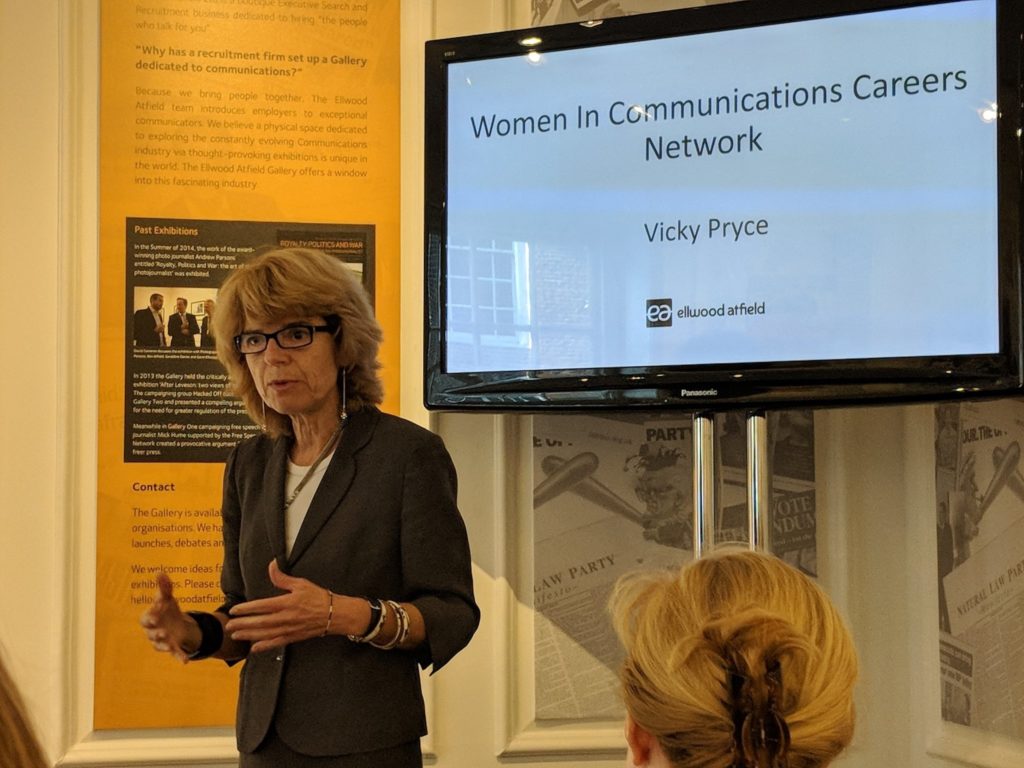
Vicky Pryce is an economist and former Joint Head of the United Kingdom’s Government Economic Service. She has held various posts, most recently as Senior Managing Director at FTI Consulting; Director General for Economics at the Department for Business, Innovation and Skills (BIS). As Joint Head of the UK Government Economics Service, she was responsible for evidence-based policy and for encouraging measures that promoted greater productivity in the UK economy.
She joined the Women in Communications Careers Network for breakfast in early July to expand on the ideas in her book Why Women Need Quotas. Vicky galvanised the room and a few of the responses were:
“Thought this morning was great fun, good ‘food’ for thought, and I caught up with some people I hadn’t seen for a while. Looking forward to finding out more of what Vicky Pryce thinks from the book. She’s really very impressive.”
“She is a great speaker, and advocate, and I love her energy!”
“Thank you very much for a really interesting breakfast this morning. Whilst I am in the no-quota camp I thought Vicky was great and her commentary made for a great discussion.”
“What a fantastic speaker Vicky was. Well done you and the team for securing her.”
For those that couldn’t make the event, here are the key takeaways.
Key Points
1) “If we do not encourage companies to develop and retain their talent, by quotas if necessary, we risk a massive loss in productivity as skilled people leave the workforce”. This could be because they want to have children and see childcare and work as incompatible, or once they do have children they perceive that conditions and attitudes in the workplace change, the culture of their industry and how they socialise doesn’t fit in with being a woman, or they are expected by a male-dominated industry to behave like a man before they are considered equals.
2) “When there is more than one woman on a company board, the dynamic changes”. It prevents group thought. Women feel like they can speak out more, and therefore their influence increases. When you consider women tend to be the primary consumers and decision-makers on household spending, they should be involved at a senior level of the companies serving them. Last year, in an update of their 2015 report into the correlation between diversity and profitability, McKinsey stated that “it’s very clear that when women are at a critical mass, 20 per cent or more, at the decision-making level, it is that which is most correlated with higher performance”.
3) “Quotas don’t prevent meritocracy”. They actually drive it by widening the choice of candidates. People should be judged on merit, and by encouraging more women to stay and compete, meritocracy can only increase. When Vicky left the room, attendees were asked to vote on having short-term quotas to address the balance, the room opted for a change. With commitments by Financial Services firms pledging to the Women in Finance Charter to set non-statutory targets for quotas, there is a movement in this direction. The question is, will it be enough, and deliver results in good time?
If you would like to attend our events with Baroness Wheatcroft and Dame Helena Morrissey later in the year, please sign up here.


